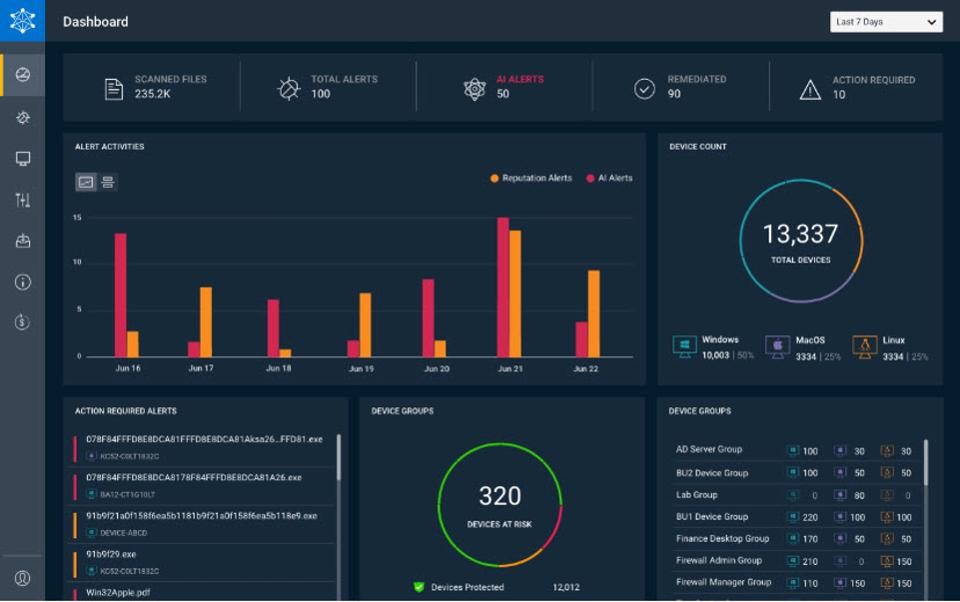How A Startup Uses AI To Help You Find The Market Research You Need
- 95% of the content essential for decision making in an organization is unstructured, residing in PDFs and various file formats that defy easy indexing and quick access, according to MIT Media Labs.
- 80% of typical organizations’ data is unstructured, slowing down work, often leading to less-than-optimal decision-making, according to an Accenture study published earlier this year.
- Organizations use 35% of their structured data for insights and decision-making, but only 25% of their unstructured enterprise data, according to an Accenture study on how data is used for decision-making.
- 60% to 80% of employees can’t find the information they are looking for even when there’s content management or knowledge management system in place, according to IBM’s knowledge management study.
Bottom Line: Stravito is an AI startup that’s combining machine learning, Natural Language Processing (NLP) and Search to help organizations find and get more value out of the many market research reports, competitive, industry, market share, financial analysis and market projection analyses they have by making them searchable.
When It Comes To Finding Market Research Data, Intranets Aren’t Getting It Done
Facing tight deadlines to get a marketing plan together for a new product, channel, or selling strategy, market research and product marketing teams will give up looking for a report they know they’ve bought and re-purchase it. The tighter the deadline and the more important the plan, the more this happens.
When a quick call to the Market Research Analyst who has access privileges to all the market research subscriptions doesn’t have the reports a team needs, they either move on without the data or repurchase the report. Having spent the first years of my career as a Market Research Analyst, I can attest to the accuracy of IBM’s finding that 30% of a typical knowledge workers’ day is spent searching for information and understanding its context and original methodology. All reports our organization had distribution rights to internally went on the Intranet site. There were hundreds of reports available online on an Intranet platform with mediocre search capabilities.
The company was founded by Thor Olof Philogène and Sarah Lee in 2017, who together identified an opportunity to help companies be more productive getting greater value from their market research investments. Thor Olof Philogène and Andreas Lee were co-founders of NORM, a research agency where both worked for 15 years serving multinational brands, eventually selling the company to IPSOS. While at NORM, Anders and Andreas were receiving repeated calls from global clients that had bought research from them but could not find it internally and ended up calling them asking for a copy. Today the startup has Carlsberg, Comcast, Colruyt Group, Danone, Electrolux, Pepsi Lipton and others. Stravito has offices in Stockholm (HQ), Malmö and Amsterdam.
Instead of settling for less-than-optimal market and industry data that partially deliver the insights needed for an exceptional product launch or sales campaign, marketing & senior management teams need to set their sights higher. It’s time to replace legacy Intranet sites and their limited search functions with AI-based search engines that auto-tag content and build taxonomies based on content attributes in real-time. Stravito combines AI, machine learning, NLP and Search on a single platform that can index every major file type an organization uses, creating a taxonomy that streamlines search queries.
Having AI as the foundation of the Stravito platform delivers the following benefits:
- AI-powered fast search gives individuals the ability to find and share insights and information quicker than any legacy Intranet technology could. With everyone working from home and self-service being a goal every marketing, business planning and IT department is trying to achieve today, Stravito’s architecture is designed for simple queries and requests anyone can quickly learn to create.
- Relying on AI and machine learning to alleviate the need to manually upload and tag hundreds of market research reports and analysis. Stravito’s approach to data categorization using AI also identifies and removes duplicate report copies and can be configured to filter out any reports past a specific date. Search perimeters, auto-tagging and in-PDF search options are all configurable. Stravito will rank PDFs by the percentage of relevant content they have for a specific search term, providing a bar graph designating which pages have the most relevant content.
- Stravito’s design team has successfully combined AI, machine learning and advanced user interface design to produce an application comparable to Spotify, Google and Netflix. Developing and launching an enterprise-level search engine designed for usability first is noteworthy. Many enterprise applications still aren’t achieving this design goal despite being mentioned as a first priority by enterprise software vendors. As can be seen from their search results screen, Stravito’s approach is to combine information discovery and collaboration:

- Stravito deserves credit for finding new ways to use AI and machine learning to accomplish drag-and-drop integration of any commonly used file format in an organization – and then have it assigned to a taxonomy in seconds. Stravito’s innovative use of AI, machine learning and auto-tagging provides its customers with a simple drag-and-drop interface that supports bulk uploads. The platform has API integration designed with any market research or advisory service with an API library compatible with their platform. Their customer base actively relies on Euromonitor and Mintel today, for example.
Conclusion
Stravito fills the gap legacy Intranet technologies and current generation collaboration platforms are not addressing. That’s the need to provide a more powerful search engine, one capable of continually adapting to new information and documents. Supervised machine learning has proven effective for taking on challenges related to creating and keeping taxonomies current. Stavito’s product strategy of providing personalized recommendations for the content of interest is a natural progression of their platform. For organizations overwhelmed with research data yet can’t seem to get the reports to decision-makers fast enough, the Stravito platform is worth checking out.


















